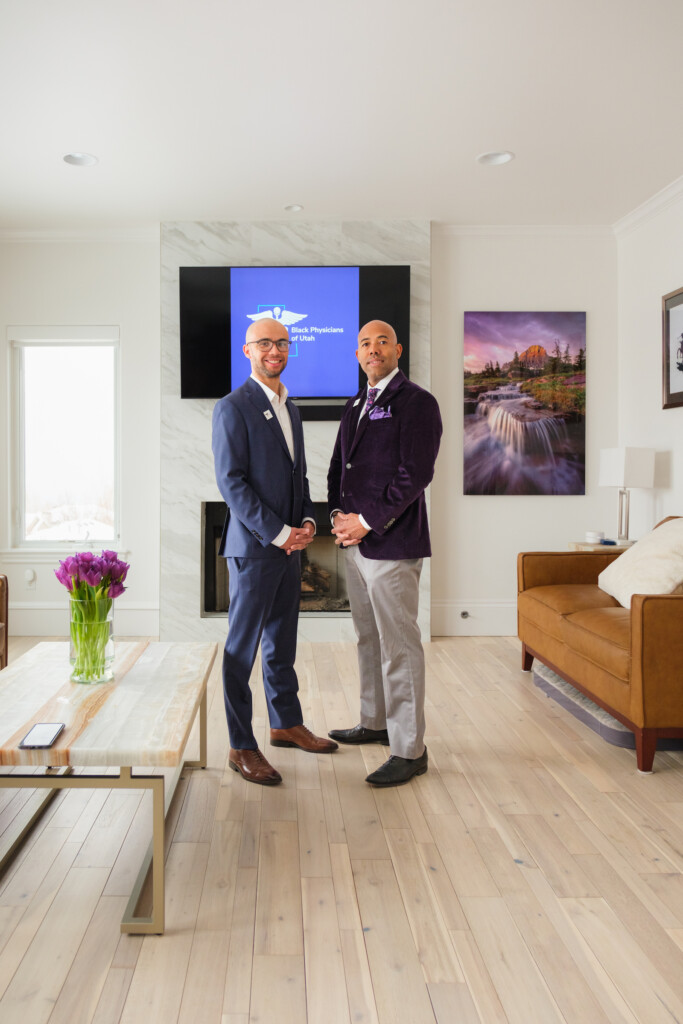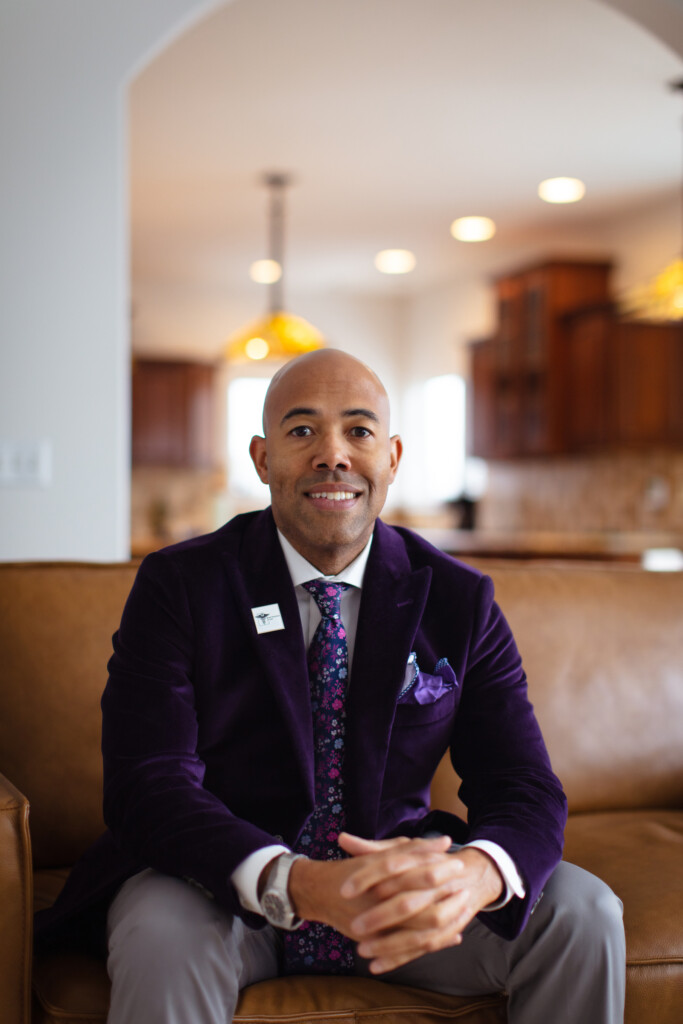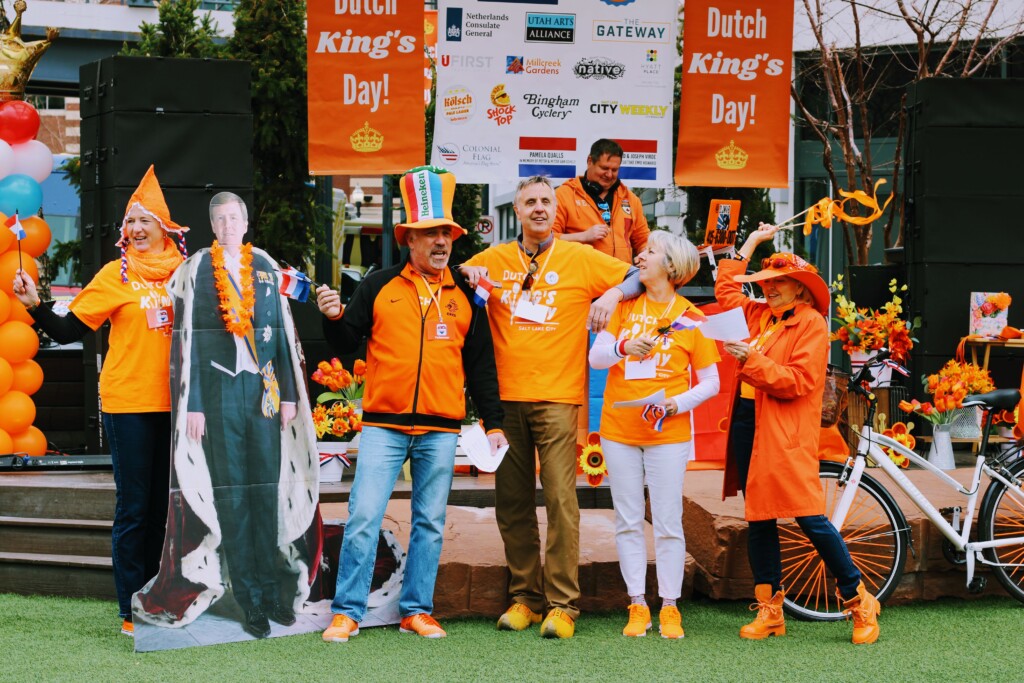The house was still standing but fire had ravaged the inside. Soot covered the floor. A family photo clung to the wall; its frame had melted. When 13-year-old Richard Ferguson stepped inside, he cupped his hand over his nose and mouth, but the smell of smoke punched through.
Alongside his sister, mom and stepdad, Ferguson sifted through rubble. Most of his favorite sci-fi books were destroyed. But tucked inside the seat of a stool, he found a more serious one. It was a gift from his dad, whom he adored. He brushed it off. In the years to come, he’d return to that book again and again, even though the pages still smelled like smoke. The book “Blacks in Science” by Ivan Van Sertima discusses the contributions Black people made to modern American science. It served as proof of what Ferguson, who is Black, could do and become.
Dr. Ferguson, now 46, keeps that book in his home in Davis County. He is the first doctor in his family and, today, works as chief medical officer for Health Choice Utah. On top of a busy schedule overseeing the care received by insurance plan members, he fills his evenings and weekends with a second job. It offers no pay, but instead, the chance to shape the future. As president and founder of Black Physicians of Utah, Ferguson aims to support and increase the number of Black people in medicine.
While Black people comprise about 12% of the U.S. population, they represent under 6% of practicing physicians, according to the Association of American Medical Colleges. Eliminating this gap is one goal of organizations like Ferguson’s. Why? Because of glaring health disparities. Black Americans experience, for example, higher rates of infant mortality, heart disease, stroke, cancer, diabetes and COVID-19. Their average life expectancy, 70 years old, is six years less than white Americans, according to the Centers for Disease Control and Prevention.
Research points to a solution: When Black patients see Black doctors, health outcomes improve.
Although Utah’s Black population is under 2%, Ferguson believes that will change as the state continues to grow. “I don’t want someone to say, ‘I left Utah because I felt uncomfortable there, I felt out of place, I felt there was no support for me,’” Ferguson said. He started Black Physicians of Utah in 2021 to create a social network for Black physicians and to mentor aspiring physicians, many of whom have already experienced benefits.

Isaiah Shipp, 27, grew up in Sandy and was considering a career in medicine when he heard about Ferguson. On a whim, Shipp sent him an email. He didn’t expect a response. Ferguson replied that day, and the next, they were chatting on Zoom.
“I had never met a Black doctor before,” Shipp said.
The first event Shipp attended with Ferguson was a COVID-19 vaccination clinic in 2021. Shipp convinced his family to attend. “My family doesn’t trust health care,” Shipp said. Shipp recalled his grandmother frequently pointing to the Tuskegee syphilis experiment. “Did you see what they did to those folks?” she’d say, as the reason not to see a doctor.
In a study that spanned four decades, doctors from the U.S. Public Health Service amassed 600 African American participants, two thirds of whom had syphilis. Even when penicillin became the recommended treatment in 1943, researchers withheld it, according to the CDC.
“The expectation of not going to the doctor gets instilled in us when we’re kids, and it gets passed on,” Shipp said. Having a Black doctor can change that.
At the vaccination clinic, flanked by Ferguson and Dr. Samuel Cheshier, a Utah-based pediatric neurosurgeon who is also Black, Shipp watched his dad and brother receive shots. Later, three more of his siblings did, too.
“Without them, I don’t think my family would have gotten vaccinated.”
Shipp was already attempting to navigate a path into medicine, but he sometimes questioned it. “I always felt like I was the odd one out in school,” he said, since most of his classmates were white.
Black Physicians of Utah reassured him in multiple ways. Shipp received a grant, worth over $3,000, that paid for MCAT preparatory classes, which, with three kids, he wasn’t sure how he would have otherwise afforded.
Ferguson also connected him to a mentor — the same neurosurgeon from the clinic, whom Shipp spent hours shadowing in the operating room.
The intangibles, Shipp said, have been even more impactful, such as getting to know other students who are Black and seeing them succeed through the rigors of med school. “It just motivated me beyond words.”
In February, Shipp was doing calculus homework when his phone rang. He jumped out of his chair. PROMIS2U, a program at the University of Utah School of Medicine, accepted him. If he meets the requirements over the course of one year, he’ll advance into the medical school.To learn more about Black Physicians of Utah, visit here or follow them on Instagram at @black_physicians_of_utah.






